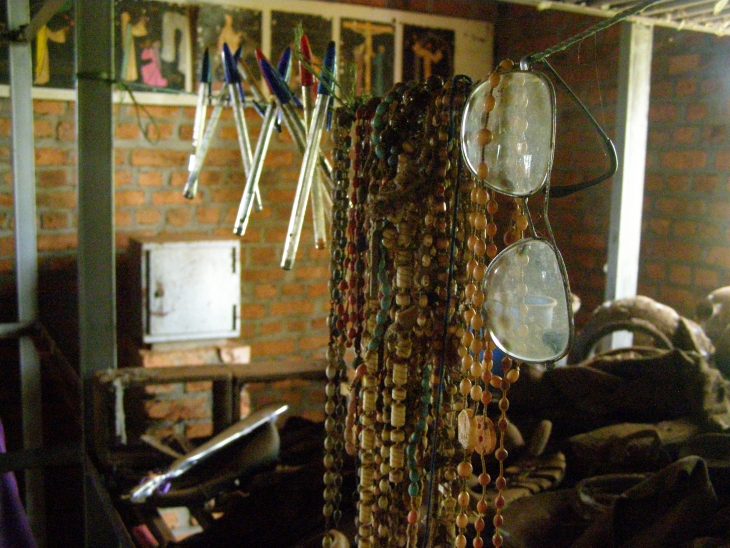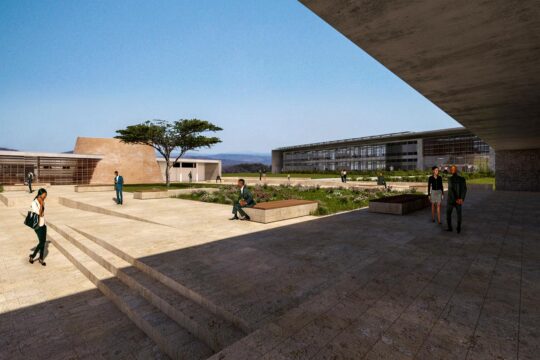Human Rights Watch (HRW) was in the forefront of NGOs pushing for the International Criminal Tribunal for Rwanda (ICTR), which officially closes its doors on December 1. Géraldine Mattioli-Zeltner, international justice advocacy director at HRW, told JusticeInfo.Net in an exclusive interview the Tribunal has made an “extraordinary” contribution to fighting impunity, but has fulfilled only part of its mandate.
JusticeInfo.Net: What is the ICTR’s legacy to humanity after its 20 years of work?
Geraldine Mattioli-Zeltner: The UN Security Council’s creation of the ICTR in 1994 – and of the Tribunal for former Yugoslavia – marked an extraordinary turning point in the international community’s response to grave violations of human rights on a mass scale. The creation of this Tribunal signalled that these crimes must be prosecuted and punished, that impunity is no longer an option. It was a founding moment for international justice which paved the way for the creation of the International Criminal Court several years later and allows us to continue saying today that there must be justice for these crimes which shock the conscience of humanity, wherever they are committed.
JusticeInfo.Net: Has the Tribunal fulfilled its mandate?
G.M-Z: The ICTR was set up to judge those who played a leading role in the genocide. It has done this to a certain extent, tried and convicted several important Rwandan personalities including former Prime Minister Jean Kambanda, former army chief of staff General Augustin Bizimungu and former top Defence Ministry official Théoneste Bagosora. By convicting more than 50 people, and also by the acquittals it handed down, the Tribunal has helped to establish the truth about the organization of the Rwandan genocide and deliver justice to victims.
JusticeInfo.Net: And what is its contribution to international jurisprudence?
G.M-Z: Undoubtedly the ICTR has through its vast jurisprudence also made a great contribution to the development of international law. A well-known example is the fact that the ICTR was the first, in the Akayesu case, to prosecute rape as an act of genocide. ICTR practice also provides important lessons in key areas of international justice, such as prosecuting sexual violence, relations with national courts and the hunt for fugitives. Of course the ICTR has also been subject to criticism and it is also important to remember what worked less well, so as to improve the functioning of this type of tribunal in the future.
JusticeInfo.Net: Indeed, the Tribunal is criticized for not prosecuting crimes allegedly perpetrated by former rebels of the Rwandan Patriotic Front (RPF), now in power in Kigali.
G.M-Z: That is perhaps the greatest failure of the ICTR. Not a single case concerning these crimes was brought before the court, despite the fact that it has a clear mandate to also prosecute war crimes and crimes against humanity committed by the RPF in 1994. These crimes cannot at all be equated with the genocide, but the victims also have a right to justice. The ICTR’s reticence to try RPF crimes can be explained by strong pressure against it from the Rwandan government and the risk that it would jeopardize the government’s cooperation in other cases. Nevertheless, the failure to try RPF crimes is a stain on the Tribunal’s legacy. It creates the impression that the ICTR handed down victor’s justice, and undermines its credibility, notably with the Rwandan population, the main people the Tribunal was meant to serve.
JusticeInfo.Net: What do you think of the trial of former RPF rebels that the ICTR Prosecutor handed over to Rwanda (case relating to the assassination of eight senior figures of the Catholic Church in central Rwanda in June 1994)?
G.M-Z: Human Rights Watch monitored the trial in Rwanda closely and concluded it was marked by numerous problems and was not credible. The two highest ranking officers were acquitted, whereas two lower ranking ones who admitted to murder were sentenced to five years in jail. Both the prosecution and defence presented the murders as a spontaneous reaction by soldiers stricken with grief over the loss of officer colleagues’ relatives in the genocide. The court heard only testimonies supporting this version of events, despite evidence given to the Rwandan prosecutor’s office by the ICTR that these murders were part of a planned military operation involving senior authorities. This trial betrayed victims’ right to justice.
JusticeInfo.Net: How do you assess developments in the two cases the ICTR handed over to France (Father Wenceslas Munyeshyaka and former prefect Laurent Bucyibaruta)?
G.M-Z: For many years, France showed a negative attitude to handling cases on the Rwandan genocide, letting suspects in France live untroubled, despite investigations opened as of 1995. France has also been sanctioned several times by the European Court of Human Rights for the slowness of its procedures against genocide suspects living in France. In 2012, France set up a special war crimes and crimes against humanity unit and promised to put an end to impunity for genocide suspects. The first trial took place in 2014, resulting in a 25-year jail sentence for Pascal Simbikangwa, a former member of the Rwandan intelligence services. Investigations in these cases are complex, for the crimes were now committed a long time ago, in a context which is foreign to French investigators, which could explain the slowness to some extent. Several other investigations are under way and Human Rights Watch continues to urge the unit to do everything it can to move them forward quickly.
JusticeInfo.Net: As the Tribunal closes its doors, nine of its Accused are still on the run, including three considered to be “big fish”. Is there hope that they will be arrested one day?
G.M-Z: Implementing the arrest warrants issued by international tribunals is the Achilles heel of international justice. The ICTR, like the other international tribunals and the International Criminal Court, does not have its own police force to carry out arrests. It depends entirely on the cooperation of the countries where suspects are thought to be. These countries may have other priorities and not hunt the suspects actively. Sometimes they simply do not want to cooperate. Here diplomatic pressure from third-party States is of prime importance. As the ICTR officially closes, it is essential that States remain active in the hunt for the nine fugitives. There must be a clear message that the ICTR’s residual Mechanism, based in Arusha, Tanzania, remains mobilized in the search for them and that it must get assistance and cooperation from everyone in this task. The UN Security Council in particular must continue to state loudly and clearly that these suspects will be arrested to face justice, even after the Tribunal has closed.
JusticeInfo.Net: Another headache for the ICTR is finding host countries for acquitted persons and those who have served their sentences. How do you explain that?
G.M-Z: The people acquitted by the ICTR or having served their sentences cannot or do not want to return to Rwanda. As members of an administration that was responsible for the genocide, they fear for their security or think they will face reprisals from the current government. It is up to all States to volunteer to take these people, so they are not condemned to live in an ICTR house without any future prospects. Taking acquitted persons or those who have served their sentences is perhaps not the most attractive part of supporting international justice but it is absolutely crucial for the respect of these people’s rights and for the credibility of the international judicial institutions who are otherwise likely to be accused of abandoning them. An important lesson to be drawn from ICTR experience is the need for agreements on this issue between the tribunals and States to be concluded as quickly as possible, before the problem emerges.






